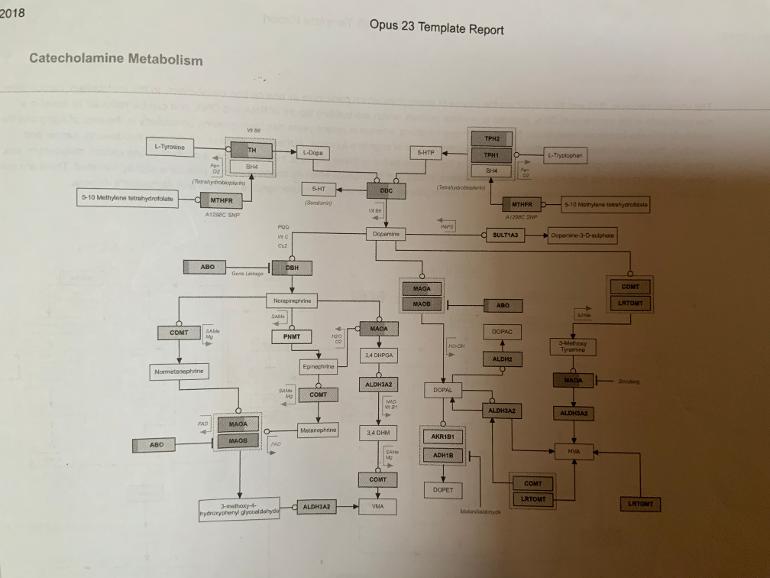Hubby has been having a bad patch lately with symptoms deteriorating so we decided to try increasing his madopar from 3 1/2 x 50/12.5 tablets to 5 but he couldn’t tolerate the extra (usual extra rigidity and suicidal thinking) so reduced back to 4 1/2. PD nurse still thinks it isn’t enough. Maybe with move his movement would be improved he just doesn’t tolerate it.
My guess is it’s because of his dopamine beta hydroxylase running fast, (genetic testing picked this up) breaking down the dopamine too fast so it runs out too quickly and causes rigidity and anxiety.
I looked up dopamine beta hydroxylase how to slow it down naturally and apparent st johns wort does this. So I’m trying him on a cup of this a day at the start and he seems a bit calmer but I will keep you posted over whether it is effective.
thieme-connect.com/products...
“SummaryExtracts from the herb “St. John’s wort” (Hypericum perforatum L.) are used for the treatment of mental depression, nervousness, sleeplessness and for their wound healing, diuretic and antirheumatic properties. As one biochemical mechanism for depression lack of catecholamine neurotransmitters has been discussed. The results of this investigation show that alcoholic extracts from Hypericum perforatum L. on the basis of total hypericin content inhibit dopamine - β - hydroxylase with an IC50of 0.1 µmol/l; pure commercial hypericin inhibits with an IC50 of 21 µmol/l. Enzymes involved in the synthesis of dopamine from tyrosine, namely tyrosinase and tyrosine decarboxylase, are not influenced by hypericin at concentrations from 1 up to 10 µmol/l.”
pubmed.ncbi.nlm.nih.gov/108...
” It has been recently reported that alcoholic extracts from Hypericum perforatum inhibit dopamine-beta-hydroxylase (D-beta-H) with an I50 of 0.1 mumol/l on the basis of total hypericin content and with an I50 of 21 mumol/l with pure commercial hypericin.”
chemicalbook.com/article/ap...
“recent studies report antidepressive, antineoplastic, antitumor and antiviral (human immunodeficiency and hepatitis C virus) activities of hypericin; intriguing information even if confirmation of data is incomplete and mechanisms of these activities still remain largely unexplained. In other contemporary studies, screening hypericin for inhibitory effects on various pharmaceutically important enzymes such as MAO (monoaminoxidase), PKC (protein kinase C), dopamine-beta-hydroxylase, reverse transcriptase, telomerase and CYP (cytochrome P450), has yielded results supporting therapeutic potential. Research of hypericin and its effect on GABA-activated (gamma amino butyric acid) currents and NMDA (N-methyl-D-aspartat) receptors also indicate the therapeutic potential of this substance whereby new insights in stroke research (apoplexy) are expected”
His genes analysis report is attached. Note St. John’s wort can interfere with meds so check interactions and proceed with caution
